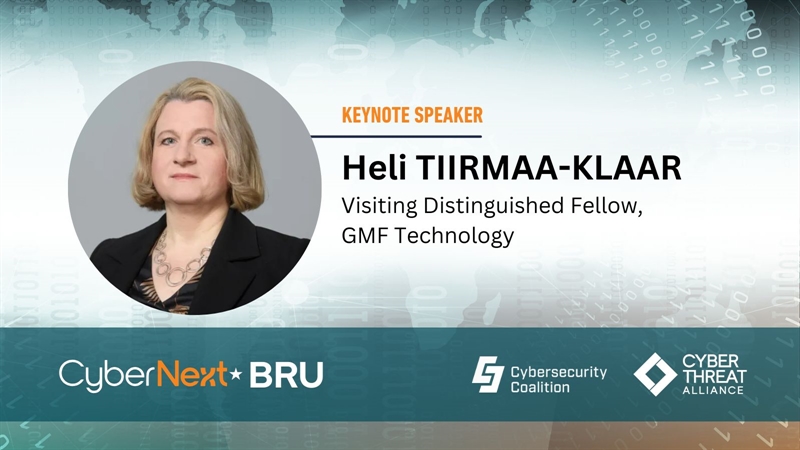TransatlanTech Insider—March 2025 Edition
Welcome to the March edition of the TransatlanTech Insider.
This month, in addition to pending cuts to the CHIPS office at the US Department of Commerce, cyber red teamers at the Cybersecurity and Infrastructure Security Agency, and the entire 1100+ strong scientific research office at the Environmental Protection Agency, DOGE has turned its attention to the Pentagon, where technology continues to take a front seat. Depending on the cuts made at the Department of Defense, there are implications for US competitors and allies to step in and pick up the slack.
The 2025 department’s research, development, test, and evaluation (RDT&E) budget, which includes investment in next-gen technologies ranging from artificial intelligence (AI) and space to quantum, biotech, and “future G” communications, has come in $7 billion lower than last year’s. Defense Secretary Pete Hegseth has already announced $580 million in spending cuts, including on equitable AI, noting, “I need lethal machine learning models, not equitable machine learning models." In its latest automation effort, though, the department accidentally flagged the Enola Gay, the World War II-era aircraft that dropped the first atomic bomb on Hiroshima, in a diversity, equity, and inclusion (DEI) purge. The Office of Net Assessment, long the Pentagon’s innovative engine of foresight and technology competitiveness analysis, is also being “disestablished”, alongside suspensions to signature Cold War-era international journalism programs of the US Agency for Global Media such as Radio Free Asia and Voice of America. These are gifts to Washington’s strategic adversaries.
The contrast to the People’s Republic of China’s (PRC) “Two Sessions” political event could not be starker. AI-dominated discussions and state media reports, with Premier Li Qiang announcing a new “AI Plus” initiative to integrate the technology across economic sectors. The finance ministry also announced $55 billion in the PRC’s 2025 budget for science and technology research and development, a 10% increase from the year before.
US defense cuts have also catalyzed Europe’s geostrategic awakening. European Commission President Ursula von der Leyen unveiled a ReArm Europe Plan, which aims to increase defense spending by €800 billion, including €150 billion in loans for member states to buy air defenses, artillery, missiles, “ammunition drones”, and anti-drone systems.
In this month’s newsletter, GMF Technology shares lessons from its first transatlantic Quantum Learning Roundtable, highlights its new piece on transatlantic industrial policy coordination, and provides insider reactions to key technology developments and news. Subscribe to receive future newsletter editions, follow us on X, and visit our webpage to learn more.
Featured this Month
GMF hosts Transatlantic Quantum Learning Roundtable

The March 4 event in Brussels advanced understanding of quantum computing, explored the policy impacts of quantum innovation, and identified EU and US priorities in the field. Managing Director and Senior Fellow Lindsay Gorman offered welcome remarks, and Deputy Managing Director Astrid Ziebarth and Program Manager and Fellow Julia Tréhu served as co-moderators of the roundtable.
Visiting Distinguished Fellow Ambassador Heli Tiirmaa-Klaar speaks at CyberNext

Heli Tiirmaa-Klaar spoke at the March 5 Brussels conference hosted by the Cybersecurity Coalition and Cyber Threat Alliance. She joined panelists for the session “The Path Forward for Ukrainian Cyber Defense”.
Tiirmaa-Klaar examined the efforts and strategies that the international community has employed to provide IT and cyber defense assistance to Ukraine. CyberNext participants included representatives of European institutions, EU member-state governments, industry stakeholders, and academics.
Program Officer and Fellow Julia Tréhu Publishes Op-ed

In her new piece, “The Good Old Days?”, Tréhu explores the future of US industrial policy and the legacy of the Inflation Reduction Act, a key component of the Biden-era approach and a source of significant transatlantic tension. Tréhu proposes avenues for European leaders to maintain transatlantic coordination on industrial policy amid the challenges of boosting internal competitiveness, adhering to decarbonization goals, and fending off looming tariffs.
Media Mentions
 Lindsay Gorman quoted in the New York Times on TikTok’s return to Apple and Google’s app stores
Lindsay Gorman quoted in the New York Times on TikTok’s return to Apple and Google’s app stores
“If we get to 75 days without a deal and Trump says we’ll continue to not enforce it, we will very much be in a crisis,” Lindsay Gorman said in “TikTok Returns to Apple and Google App Stores” by Sapna Maheshwari, Tripp Mickle, and Nico Grant.
Lindsay Gorman quoted in POLITICO Pro on US investigation of Russian cyberattacks
“The name of the game [in curbing Russian cybercrime] from the U.S. government perspective is indictments and naming and shaming,” Lindsay Gorman said, adding that a central question remains “whether the Trump administration can stand up to Russia on areas of U.S. interests — including continuing to pursue investigations of Russian espionage, influence, and cyberattacks on U.S. critical infrastructure.”

"Musk is, in some ways, the poster child for U.S.-China intertwinement to technology," Gorman said in “Elon Musk visits Pentagon as Trump administration denies he saw top secret China war plans” by Cybele Mayes-Osterman. "If he has a say in those conversations, then we could see a real about-face when it comes to U.S.-China policy.”
Byte-Sized Bulletin
AI and Democracy
- AI start-up Anthropic’s recent funding round boosted its valuation to $61.5 billion, a $16 billion increase from last year, reflecting the ongoing surge in funding for AI companies from OpenAI to xAI.
- Chinese tech giant Alibaba launched its AI model QwQ-32B, which it claims will outperform OpenAI’s and DeepSeek’s models. QwQ-32B adds to the growing string of Chinese tech companies unveiling AI offerings.
- President Donald Trump shared an AI-generated video on Truth Social depicting a futuristic “Trump Gaza” amid his suggestion to expel Palestinians and transform Gaza into a US-owned “Riviera”. The video’s creators claimed to have made the video as satire.
- In his recent address to Congress, Trump underscored new commitments to US data center investment and endorsed Senator Ted Cruz’s TAKE IT DOWN Act, a bill to criminalize non-consensual sexual deepfakes.
“The influx of funding for AI start-ups reflects the vitality of the US innovation ecosystem while highlighting the pressing need to develop national innovation standards. Ensuring transparency in AI models and their outputs as they are deployed across critical sectors should be a proactive rather than retroactive measure."
— Caitlin Goldenberg, Program Coordinator
- Elon Musk ally Michael Grimes, who last month assumed a senior position in the Department of Commerce, led the recent termination of 40 employees at the CHIPS Program Office, an agency key to boosting US chip manufacturing.
- The PRC retaliated against new US tariffs with its own tariffs on American agricultural products and a blacklist of 15 American companies, including biotech leader Illumina and drone maker Skydio.
- The PRC’s annual “Two Sessions” conference convened its two major bodies for eight days of legislative sessions. Party leaders projected confidence in consistent economic growth despite US tariffs, committed to new state-backed funding for AIand quantum innovation, and signaled interest in AI in smart manufacturing, new-energy vehicles, and robotics.
"While the US retreats from coordinated investment—slashing programs under the banner of “efficiency” and sidelining key institutions—the PRC is doubling down. In its 2025 work report, Beijing pledged stronger support for basic research, national tech projects, and private enterprise-led innovation."
— Dylan Welch, China Technology Analyst
- The European Parliament backed in a non-legislative resolution von der Leyen’s "ReArm Europe" plan to mobilize $841 billion for Ukraine's defense amid a halt in US military aid. The plan includes lending funds to EU governments for artillery, missiles, and anti-drone systems.
- New EU state aid rules to support the Clean Industrial Deal would mobilize aid for renewable energy, cover costs of industrial decarbonization, and increase clean-tech demand.
- European Commission regulators have accused Apple and Google of violating the Digital Markets Act in connection with unfair practices and interoperability despite the Trump administration’s warnings of retaliation if the EU applied the law against US companies.
“The European Commission’s ReArm Europe plan signals a stronger commitment to defense but overlooks research and development, a critical area in which the EU trails the United States and the PRC. EU-based researchers have largely resisted dual-use projects, but in today’s geopolitical climate, this civil-military divide is a missed opportunity. Technologies from semiconductors to satellites have dual-use potential and could rapidly boost Europe’s defense capabilities."
— Sharinee Jagtiani, Senior Officer
The Download
- Lindsay Gorman was quoted in FactCheck’s “TikTok and National Security” by Eugene Kiely on the threats TikTok poses to US national security.
- Lindsay Gorman spoke on US-EU-China technology competition in AI and biotechnology at a series of events in Barcelona, Valencia, and Alicante as part of a US State Department diplomatic program.
- Ambassador Heli Tiirmaa-Klaar spoke at the European Council Foreign Relations event “From water to airspace – Geopolitical tensions and security infrastructures: what role for Europe” on February 25. The event was funded by Fondazione Compagnia di San Paolo in partnership with Italian foreign policy magazine Formiche.
- Julia Tréhu participated in a European Cyber Agora workshop on “Global and Actor-Specific Perspectives on Cyber Accountability and Deterrence” hosted by the EU Institute for Security Studies on March 26.
GMF Technology is dedicated to ensuring that democracies together win the strategic technology competition with autocrats.
Caitlin Goldenberg and Adrienne Goldstein coordinated this month’s TransatlanTech Insider.
